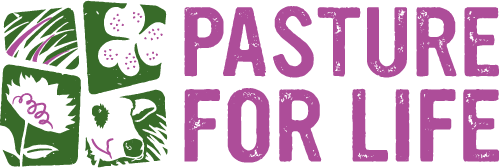Pasture Champion: Jon Thornes, South Ormsby Estate, Lincolnshire 3/5
Give us a general description of the biodiversity on your farm – essentially above ground (but reference to below ground if relevant) – both flora and fauna
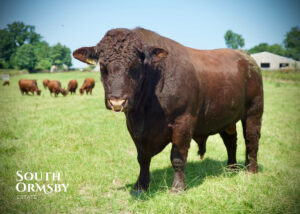 Lincoln Red bull
Lincoln Red bull
Keeping all our young stock outdoors all-year round is good news for our flora and fauna, particularly in the lean winter months. Sowing cover crops maintains growth on the arable land for as much of the year as possible and avoids long periods of bare earth with no animal life.
Mob-grazing cattle leave behind plenty of natural fertiliser and their cropping encourages tillering, the process by which plants generate multiple new shoots. It’s all good news for dung beetles and an abundance of other insects, which attract bats, swifts and swallows.
We’ve counted seven bat species doing their own aerobatic grazing. Each species favours a different grass level because they’ve learned the preferences of the moth species they prey upon. Wildlife is also more abundant around living field edges than it is in dense forest, so our efforts to sow wild margins and plant hedgerows are paying dividends.
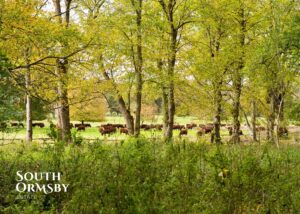 Lincoln Reds use the trees for medicinal purposes
Lincoln Reds use the trees for medicinal purposes
Visitors exploring South Ormsby Estate via our walking trails may notice that many of our mature trees are surrounded by rough circular lines.
Our Reds browse trees, nibbling leaves and twigs for extra vitamins and nutrients. They instinctively know what plants make good natural medicines, and biodiversity means they can generally find what they need. Oak leaf, for example, helps reduce burping while nettles and thistles relieve indigestion.
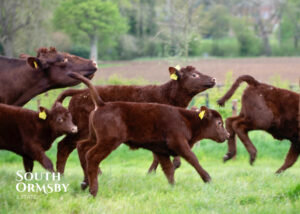 Skipping in May
Skipping in May
Not only are natural pastures effective carbon sinks, but grazing animals return nutrients to the soil in their dung.
We don’t use petrol-based fertilisers or insecticides, reducing the energy used in chemical manufacturing and keeping the soil biome healthy. A sky full of insect-munching birds and bats is the best pest-control measure we know of.
We’re currently in the first year of a two-year conversion to organic status for our beef, poultry and arable produce. By the end of 2022, our commitment to sustainable farming and the highest standards of animal welfare will have earned us fully organic status.
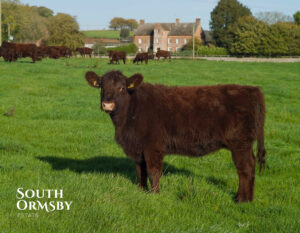 Lincoln Red 'Teddy Bear'
Lincoln Red 'Teddy Bear'
